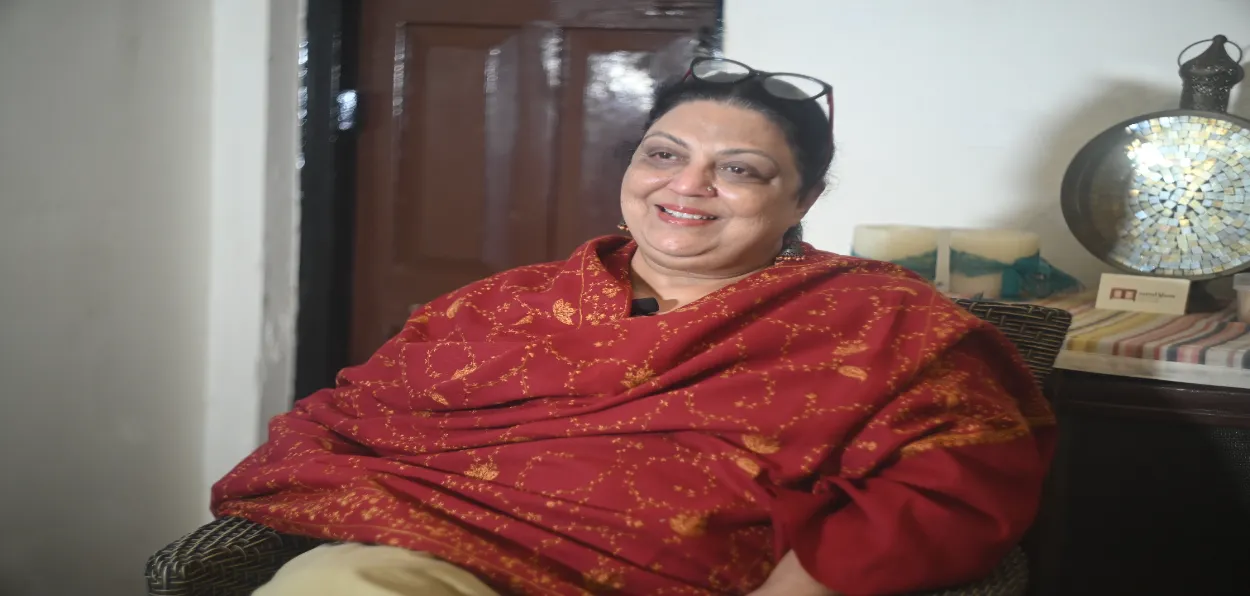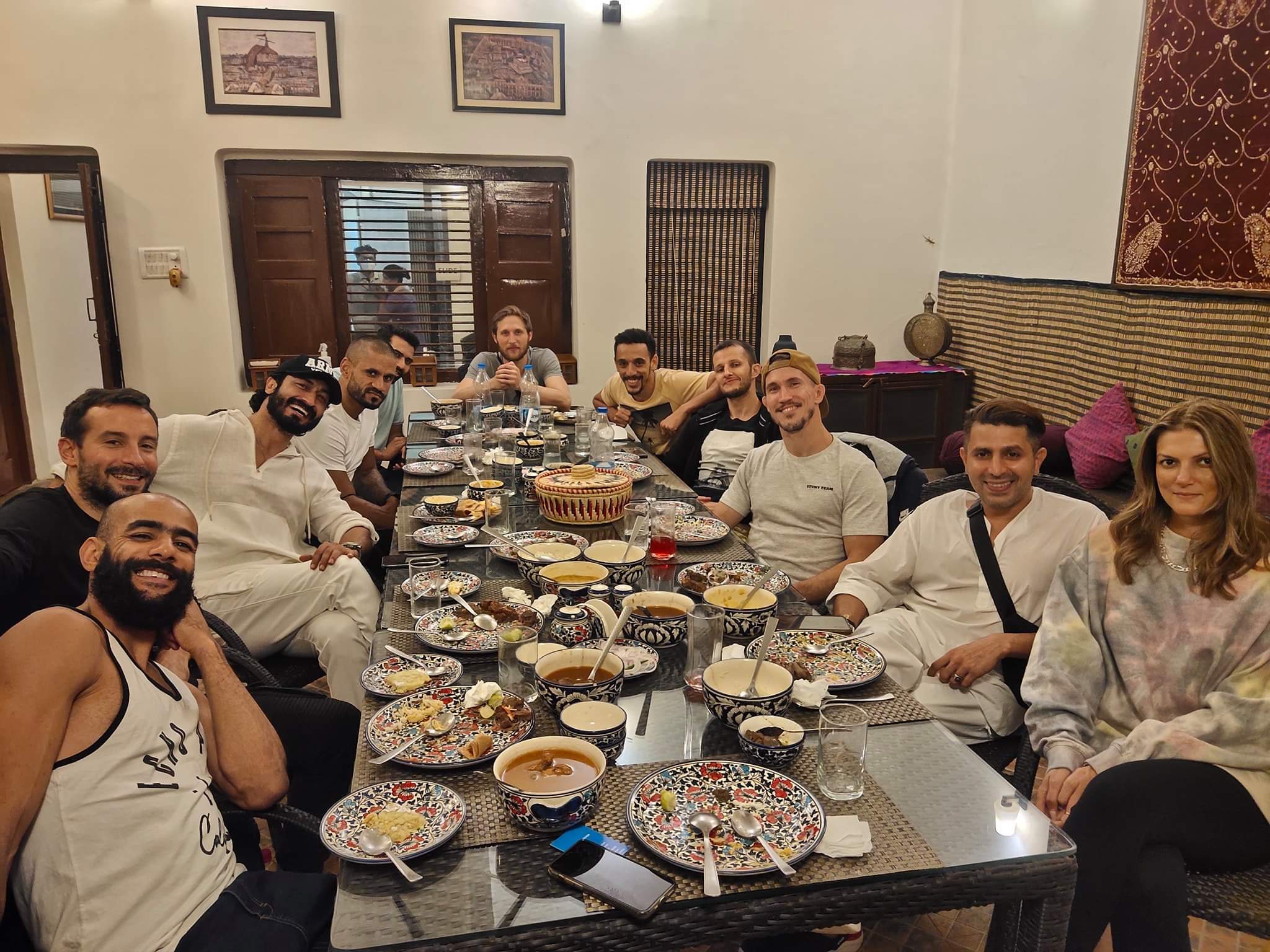
Saquib Salim
My search for authentic Awadhi food in Lucknow took me to a small restaurant, Naimat Khana, in Kaiserbagh. Naimat Khana means a house of delicacies or blessings. Needless to say, the food tasted very different from big restaurants. The place is run by Askari Naqvi, Madhavi and Sheeba Iqbal Jairajpuri.
The owners interact with and host the guests. Naqvi, a well-known vocal artist, and Madhavi were not in town and Sheeba acted like a gracious host to me. Sheeba narrated stories about the foods of Awadh, their histories, and folklore. Amidst all this conversation, I found the story ofting.
Sheeba comes from an illustrious family of scholars. Her great-grandfather Aslam Jairajpuri was a scholar and founding member of Jamia Millia Islamia. Her parents, Shamim Jairajpuri, and Durdana Jairajpuri, were professors of Zoology at Aligarh Muslim University.

Actor Vidyut Jamwal and his team at Naimat Khana
Sheeba married Iqbal Hamid, a Chartered Accountant, after completing her master's from the AMU. Despite Safiya Begum, a niece of Maulana Abul Kalam Azad, whose mother Abru Begum led several women’s movements was Sheeba’s mother-in-law. Her husband’s family was quite orthodox. Sheeba’s life revolved around her three children and being a perfect homemaker.
Life took a big turn when in 2017, Sheeba’s husband died after a prolonged illness. She resolved that she would not be financially dependent on her children. And, Aab-o-Dana started. This was an eatery where homemade Awadhi cuisine was served to visitors. People ate delicious food to re-live in the old Lucknow culture at a heritage building, which was Sheeba’s house.
Sheeba says that when she started earning after living as a financially dependent housewife for almost three decades, she felt liberated. According to her, no matter how rich one’s husband is, the fact remains that a homemaker has to ask for money. What she earns is only her money.
Working women was not an alien idea for Sheeba. Her mother and sisters are Professors. However, the environment at her husband’s family kept her at homebound. The orthodox patriarchal relatives could not take it that Aab-o-Dana was attracting people visiting Lucknow.
Askari Naqvi and Madhvi
The extended family started putting roadblocks on her way to success. However, the once docile housewife had resolved to overcome every hurdle. Meanwhile, Askari Naqvi and Madhavi met her. They were already working on popularising Awadhi food, handicrafts, arts, and music. Madhavi’s organisation Sanatkada has been highlighting the rich cultural heritage of Awadhi handicrafts for years. Sheeba joined hands with them in Naimat Khana.
The idea was not only to earn money but to change the thinking of society. They also run a leadership program where widows, divorcees, and poor women, train to make them think like professionals. Most of the staff of Naimat Khana has come from this training program. Several other women got training and are working at different places.
Working under the aegis of Sadbhavna Trust, they are helping poor women, especially Muslim women.
People visit Naimat Khana to witness Ganga-Jamuni Tehzeeb for which Lucknow is famous. Sheeba narrates the stories around the food - how food was cooked, on what occasions, and other anecdotes are shared as one relishes the Awadhi cuisine. At Sanatkada one can see and purchase handicrafts and clothes made by the local artisans. Madhavi takes care of this. Askari sings the local Awadhi songs reflecting the syncretic culture of Lucknow.
For Sheeba, in the Lucknowi culture, food is all about cooking rather than eating. It's cooked with love and care; It's an art.
ALSO READ: Amir Khurshow's naat in praise of the Prophet continues to be sung in Bengal's shrines
At Naimat Khana one finds Awadhi Ganga-Jamuni Tehzeeb, food, music, and arts amalgamated with modern social ideas. Sheeba is challenging the patriarchy using tools of traditional Awadhi society.
